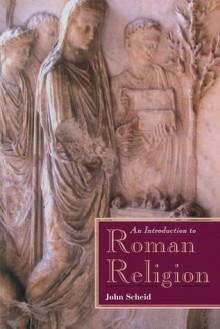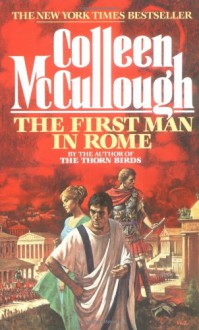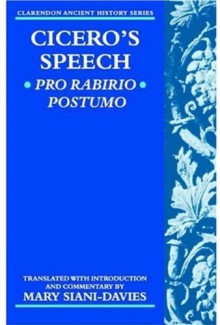S.P.Q.R. is Mary Beard's look at, not how Rome fell, which many others have taken a stab at, but at how it rose. She covers Rome's "first millenium," ending in 212 AD, when the Emperor Caracalla extended Roman citizenship to all free inhabitants of the empire.
The title takes its name from the Latin abbreviation (still used by the city of Rome) for Senatus populusque Romanus - "The Senate and the People of Rome" - which was the slogan of the Republic of Rome.
Rome's history is long. The Romans themselves believed that their city was founded in 753 BC (though they wouldn't have used the Christian calendar, of course - they dated things either from the Olympics, as the Greeks did, or ab urbe condita, "from the founding of the city"), by the mythological twins Romulus and Remus, the sons of Mars. Romulus killed Remus, and then served as the first of Rome's seven traditional kings.
Rome's kings are shadowy creatures indeed. They were shadowy even to the Romans of the late Republic, which is the period of the Republic we know most about. How Rome became a republic (traditionally in 510 BC), and the origin of its genuine loathing for kings, is pretty shadowy as well.
Things start to clear a little with the period of the first great rise of Rome, as it was now not fighting local battles with the neighbors ten miles down the road, but encroaching on the Etruscans to the north, and on the Greeks of southern Italy, and finally facing off with their greatest opponent, Carthage, capital of a great empire stretching from Spain, across northern Africa, and covering large parts of Sicily and Sardinia, as well. This period, from about 300 BC to the utter defeat of Carthage, in 146 BC, seems to have been vitally important to Rome's rise from city-statehood, dominating its immediate neighbors but having no larger reasonable ambitions, to controlling the entire western Mediterranean, and having ambitions in the east, as well.
And we just don't know enough to say exactly how they did it!
Things become clearer in the republic's last century or so, as Rome fell into autocratic rule after a series of civil wars, those of Julius Caesar vs. Pompey and then Augustus Caesar vs. Mark Antony only being the last and most well known. (For those who are interested particularly in this period, I can recommend either Tom Holland's Rubicon or Colleen McCullough's "Masters of Rome" series of historical novels.) Interestingly, Beard describes this period as "an empire in search of an emperor."
Finally Augustus Caesar, having defeated Mark Antony and Cleopatra, created a template for Rome's imperial rule which would last some 200 years after his death, with few alterations. This template, however, had a flaw - what happened when an emperor, himself a competent ruler, had a natural heir who was poorly equiped to rule? In the third century, Rome found out, and it wasn't to her advantage.
I would whole-heartedly recommend this to anyone interested in Roman history, or indeed in the question of how a small city-state came to become one of the largest empires in world history.


 Log in with Facebook
Log in with Facebook 










